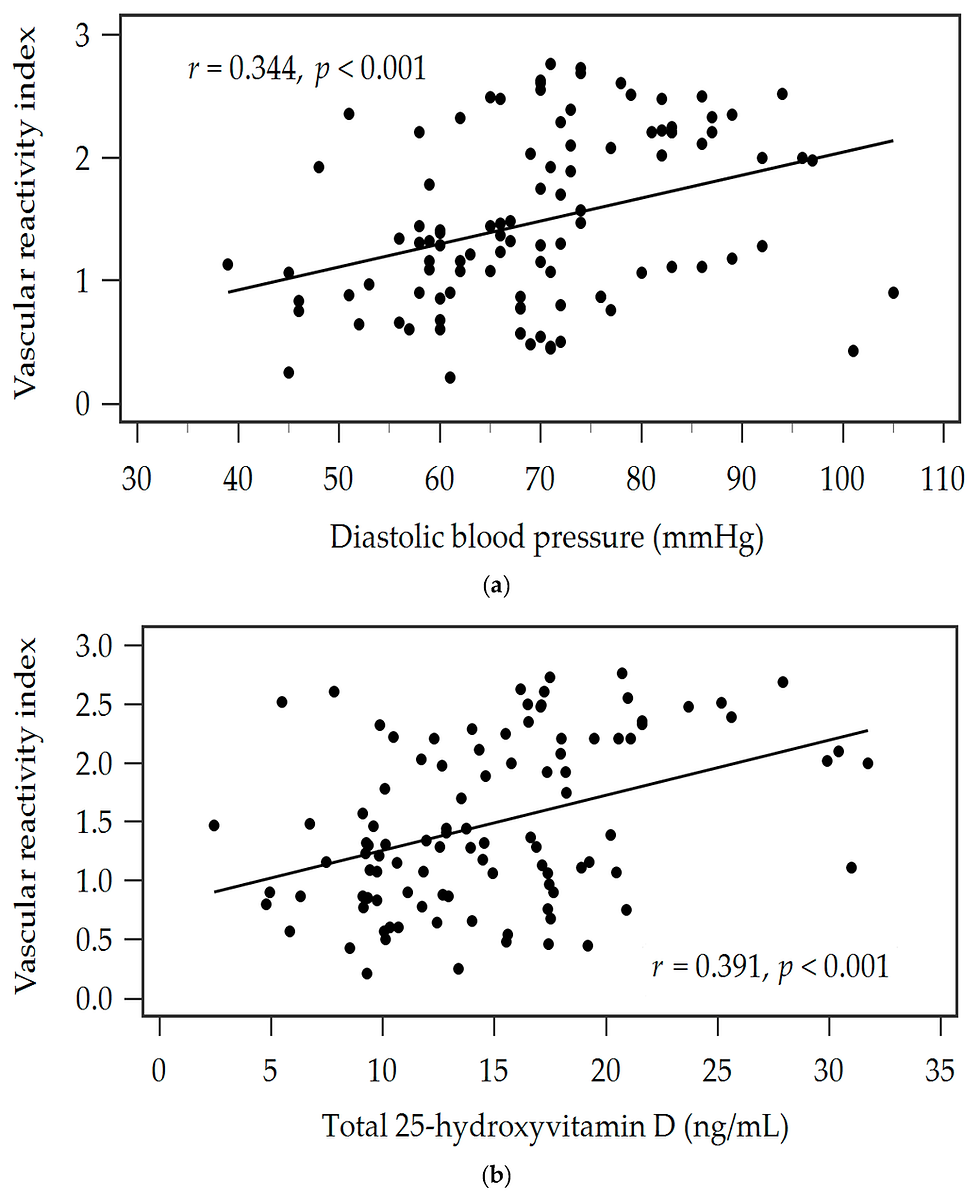Digital thermography and vascular involvement in β-thalassemia intermedia
- Mar 9, 2023
- 2 min read
Abstract Beta-thalassemia intermedia (β-TI) is associated with vascular dysfunction. We used digital thermal monitoring (DTM), a non-invasive tool that evaluates vascular function based on changes in fingertip temperature during and after cuff occlusion on β-TI patients. Thirty-three patients (18 years and older) were recruited in this study and divided into 3 groups: thalassemia, anemic controls, and healthy controls. Exclusion criteria included factors that are known to be associated with vascular damage. Patients underwent DTM and results were extracted as vascular reactivity index (VRI), a measure of how well the circulatory system responds to stimuli that require adjustments of blood flow. One-way analysis of variance (ANOVA) was used to test the mean difference in VRI between the 3 groups. A multiple linear regression was also carried out with VRI as the outcome of interest and a function of covariates that were thought to be of clinical relevance to VRI. The frequency, mean VRI ± standard error (SE) for the thalassemic group were (N = 16), mean = 2.243 ± 0.111; for anemic controls (N = 9), mean = 2.374 ± 0.162; and for the controls (N = 8), mean = 2.338 ± 0.092. ANOVA test indicated a non-significant difference in mean VRI between the three groups (P value = 0.731). Multiple linear regression couldn't detect any significant association between VRI and any of the predictors including the groups. Our study did not show a significant difference in VRI between the 3 study groups. Prospective studies of larger sample size are warranted to establish DTM as a possible non-invasive tool used to evaluate vascular function in β-TI patients.
Keywords: Beta thalassemia intermedia; Digital thermography; Thromboembolic events; Vascular reactivity index.
Read Full-Text: https://link.springer.com/article/10.1007/s00277-021-04588-8
© 2021. The Author(s), under exclusive license to Springer-Verlag GmbH Germany, part of Springer Nature.



![Lipoprotein(a) levels predict endothelial dysfunction in maintenance hemodialysis patients: evidence from [VENDYS] vascular reactivity index assessment](https://static.wixstatic.com/media/dac531_5285607cc591409a9d83746f042af7c6~mv2.png/v1/fill/w_980,h_980,al_c,q_90,usm_0.66_1.00_0.01,enc_avif,quality_auto/dac531_5285607cc591409a9d83746f042af7c6~mv2.png)
Comments